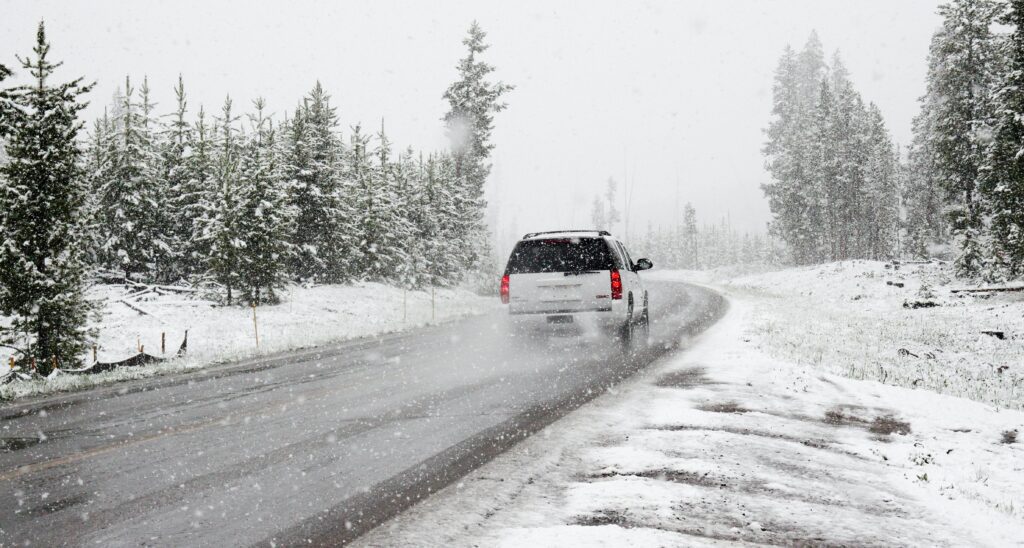
With a cold snap looming and snow warnings in place beginning on Tuesday night and through the closing of the week the AA advises motorists to be prepared and take note of warnings about weather conditions before heading out on the roads.
Two-thirds (18 percent) stated that they would not alter their plans for driving regardless of a red weather advisory in a poll from 13,000 motorists.
Drivers were asked what external factors could cause them to alter their driving schedules such as weather warnings, traffic alerts, roadworks holidays on banks, and fuel costs , as well as personal factors such as not sleeping well the night prior to.
Warnings about weather
A shocking 2% of respondents said that they would never alter their plans for driving. If the respondents stayed with their determinations during a red-weather warning, it could result in the equivalent of 720,000 motorists in the UK placing themselves and others at risk of being in danger by driving through dangerous conditions.
The Met Office weather service issues red alerts in the event of the risk of life and significant disruption, including travel and destruction to infrastructure and property. It advises you to be proactive to ensure that you and others safe from effects on the weather that is severe.
Three-quarters (75 75 percent) stated that they would not alter their plans in the event of an amber weather alert.
The Met Office issues Amber Warnings Met Office when there is the possibility of disruptions due to severe weather that could pose a danger to human life, and the risk of delays in travel or power outages, as well as closures of roads or railways.
Cars are not paying attention to warning lights
The study revealed that 19% of motorists would not alter their plans if their vehicle displayed a red warning light, for example an indicator for battery and 58% of drivers would not pay attention to amber warning lights like the “check engine” symbol.
A dashboard warning light could frequently be among the first indicators of an issue with your vehicle However, ignoring it can make the issue more serious. Being aware of a warning signal earlier can help you save cash and avoid the inconvenience that comes later.
Fuel saving prior to safety
Incredibly, the study found motorists were much more likely alter their plans due to the high prices for fuel or severe road construction as opposed to an amber weather warning that was issued from the Met Office.
Over a third (35 percent) reported that they would change their plans for driving because of the price of fuel, and more than half would pay attention to the roadworks that are acrimonious (48 percent).
Mark Born head of training at the AA Driving School said: “Winter weather brings challenging road conditions as storms and fog bring poor visibility, while wind, rain and snow can make road surfaces difficult to navigate with an increased risk of debris on the road.”
“Whether you’re a new or experienced driver, always drive to the conditions and allow extra time for your journey as there may be delays. We recommend packing winter essentials in the car such as warm, waterproof layers, a shovel, torch, fully charged mobile phone and a flask of hot drink.”
Sean Sidley, AA Patrol of the Year, said: “Understanding the impact that bad weather and inadequate upkeep can bring to safety on the road is a vital aspect of being a secure and competent driver.
“If you choose to ignore national warnings about dangerous weather conditions and don’t adapt your driving style or travel plans, you are needlessly putting yourself and your passengers at risk.
“Similarly, if you’re not maintaining your car and ignore dashboard warning lights this could lead to a costly repair bill or untimely breakdown. Keeping up to date on servicing and paying attention to national warnings and alerts for winter weather can prevent a plethora of issues further down the road.”

